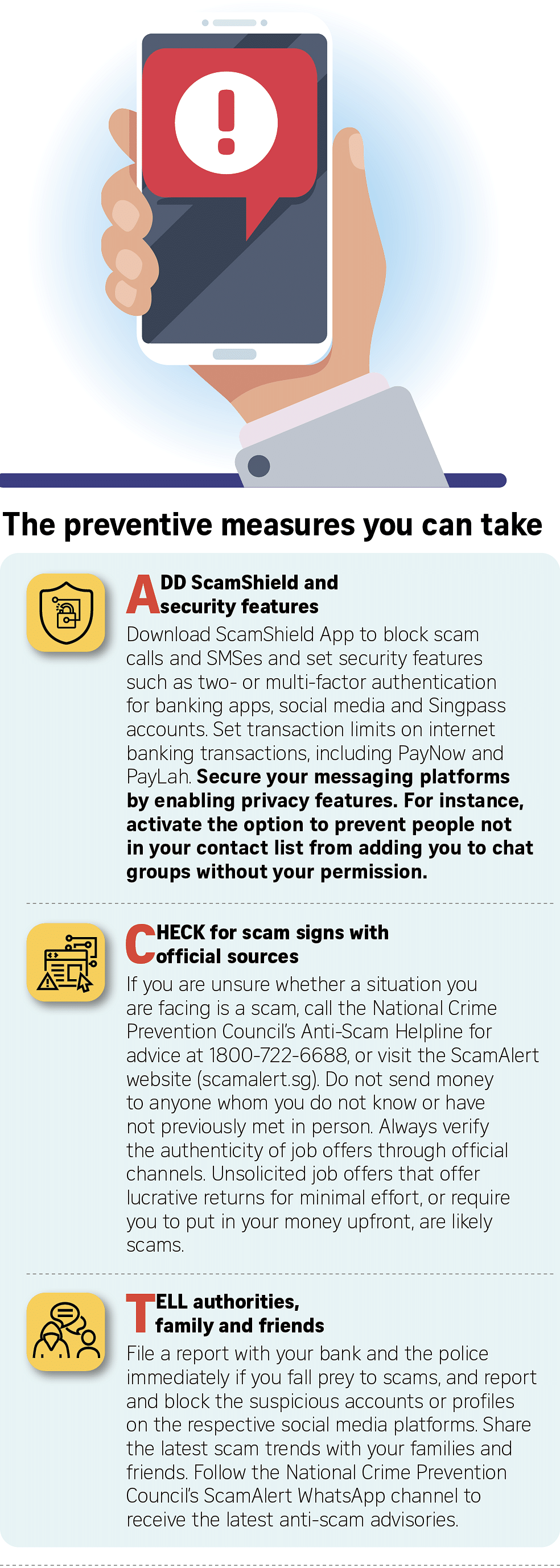You are added to a WhatsApp chat group by a stranger, who makes a simple and lucrative part-time job offer.
A flood of messages rush in from other members in the group. They rave about the easy money, flexible hours and freedom to work from home. Some even share screenshots of their earnings.
Sounds tempting?
There is a catch: After an initial small commission for simple tasks, you will be asked to pay a sum of money to start earning “big bucks”.
And that’s a clear sign that it is a scam, says Police Superintendent Matthew Choo, assistant director of the Scam Public Education Office, Singapore Police Force (SPF).
Police Superintendent Choo explains that scammers would use “psychological tactics” to entice victims. These include:
- Creating a sense of urgency through a limited-time job offer
- Adding victims into a group chat where other members help to “prove” the legitimacy of the job offer through reviews and screenshots of money received
- Using the “foot-in-the-door” technique by providing initial commissions, which baits victims into transferring their own money in order to take on bigger “jobs” to earn more money

The process
Step 1: Victims receive unsolicited job offers from messaging apps and social media platforms. Some may receive job offers after being added into a chat group on messaging apps.
Step 2: Scammers offer commissions for simple tasks, such as follow, like or comment on social media posts or other media platforms such as YouTube and Spotify. The fake job is often part-time in nature, requires little effort and can be completed online.
Step 3: Upon completing their first task, victims receive a small commission, which will convince them of the job’s legitimacy.
Step 4: Scammers then offer the victims higher commissions to entice them to take on more tasks. But this time, they will have to pay the scammers in order to take on the tasks.
Step 5: Victims will also not be paid their commissions this time. They will only be informed about the amount of commission they have earned.
Step 6: Victims may continue to put in more of their own money to complete the tasks provided by the scammers, thinking that they would earn more commission by doing so. They would realise they had been scammed when they cannot withdraw their earnings.


